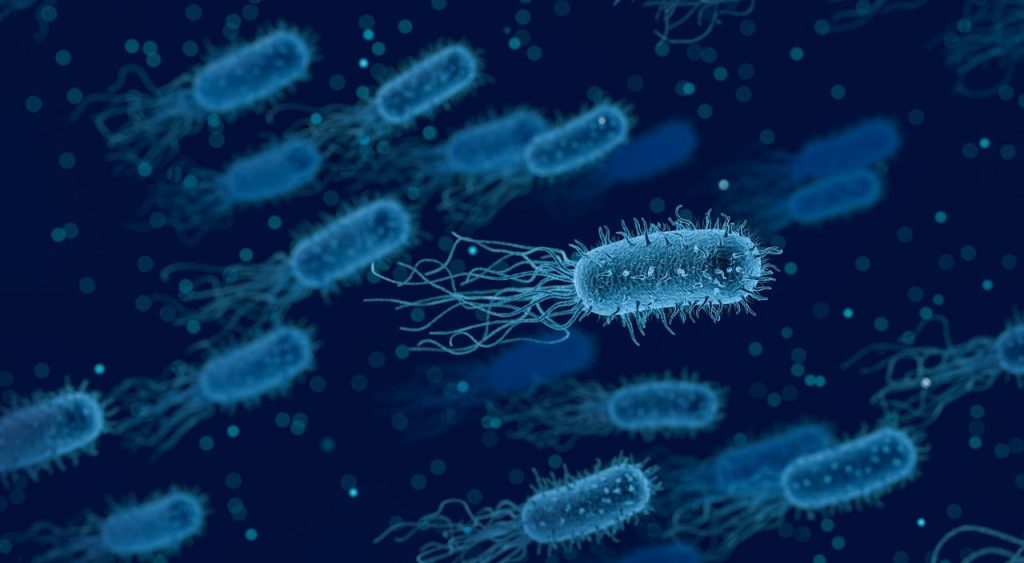All fields are required
Posted in Our Blog on December 5, 2024

Do bacteria age like humans? Or if left to their own devices, do they replicate and live on and on forever? Are they immortal?
I bet that is a question you may have never thought about. But I’ve got you scratching your head, rubbing your chin, or whatever thinking gesture you navigate to most. It’s tapping your bottom lip, isn’t it…
How exactly does something that is alive, but not quite, age?
Let’s find out!
But first, do you know how humans age?
Hint: The answer to that question involves a similar activity that takes place bacterial cells as well as ours.
The human body is a great deal more complex than single-celled bacteria.
As you might imagine.
Our bodies are made up of trillions of cells. In fact, according to Live Science, “the average adult male human has around 36 trillion cells – that’s 36 followed by 12 zeros – while adult females have 28 trillion and 10-year-old children have about 17 trillion.”
This number was determined by gathering data across 1,500 research papers analyzing 60 types of tissue.
The human body sounds quite crowded. Not to mention the number of bacterial cells that populate our skin, orifices, and digestive system! But that is another topic entirely.
Human aging is the culmination of all of those trillions of cells aging. This takes place due to a part of the cell called a “telomere.”
Telomeres are parts of the DNA in all of our cells.
Every single one of them.
Each time a cell replicates (our cells do this too), the telomere can shorten. They continue to shorten at a rate often decided by specific lifestyle factors or genetics until they can no longer facilitate cell division.
Shorter telomeres have been associated with increased incidence of disease or poor survival.
But good news! You may be able to help slow this process in your body.
A more nutritious diet, exercise, and other factors can help reduce the rate of telomere shortening. Or at the very least, delay the onset of age-associated diseases. Maybe even increase life expectancy.
Hear that kids? Eat your vegetables! Drink plenty of water. And mind your bed time.
So that is that about humans.
Back to microbes.
Since aging is a cellular process. And bacteria are cells. Superficially, it would seem that bacterial aging is likely.
But how does it happen?
Just like human cells, bacterial cells propagate themselves. Only they have just the “one” cell and not trillions of them to manage.
Live, copy, repeat.
How do bacteria replicate though?
Rather than sexual reproduction, bacteria undergo a process called binary fission to replicate themselves. This is a process where a cell makes a copy of their own DNA and then divides into two cells. Instead of two cells coming together to make one, the one cells makes two.
Believe it or not, this process can take place in as little as 10 minutes.
So, if new cells are simply freshly minted cells copied from an original, they shouldn’t age, right? A copy is just a copy with parent and offspring seemingly appearing the same.
That has been the theory so far.
However, some studies, like one in 2005, found that there are minor differences between the parent (original cell) and offspring (copy).
Upon closer inspection, older cells experience a growth rate decline over time. They also experience reduced offspring production over time as well.
Small changes from one cell to the next progeny are also observed. Most of the time, the process does not result in an “exact” copy. Simply one that is close enough.
As it turns out, this imperfect copying happens to be a good thing. In fact, without some minor differences, a single factor could take out all of the cells. Small variations increase survivability under changing conditions.
When bacteria encounter something that will kill them, chances are, some of them have the necessary genetic factors to survive the pressure.
In fact, these types of environmental pressure can “age” a cell. When cells encounter certain types of stress, they are triggered to create mutations. Instead of practicing the same recipe over and over making sure it is right over time, it is more like trying different variations of a recipe to see which one your family will eat.
Some of those variations won’t survive. Others may live through the stress. As those mutations impact cells, they effectively age.
While this discovery answers the question you didn’t know you had. But are glad you now know (you can thank me when you remember this bit of information at your next social function). There are some interesting benefits of this discovery.
Understanding that bacteria do, in fact, age allows scientists to consider these findings in antibiotic applications. Antibiotics are essentially stressors to these types of cells.
What’s more stressful than agents coming at you to kill you after all.
Using their playbook on what happens at the next steps in their response can help antibiotic manufacturers design future drugs to compensate for it.
A cell is a cell is a cell. And bacterial cells can be easily studied. It isn’t a huge leap that researching how bacteria age and factors that can help slow that process may also be used on human cells. A fountain of youth, so to speak.
If you’d like to know more about food safety topics in the news, like “Do Bacteria Age Like Humans? Or Are They Immortal?,” check out the Make Food Safe Blog. We regularly update trending topics, foodborne infections in the news, recalls, and more! Stay tuned for quality information to help keep your family safe, while The Lange Law Firm, PLLC strives to Make Food Safe!
By: Heather Van Tassell (contributing writer, non-lawyer)